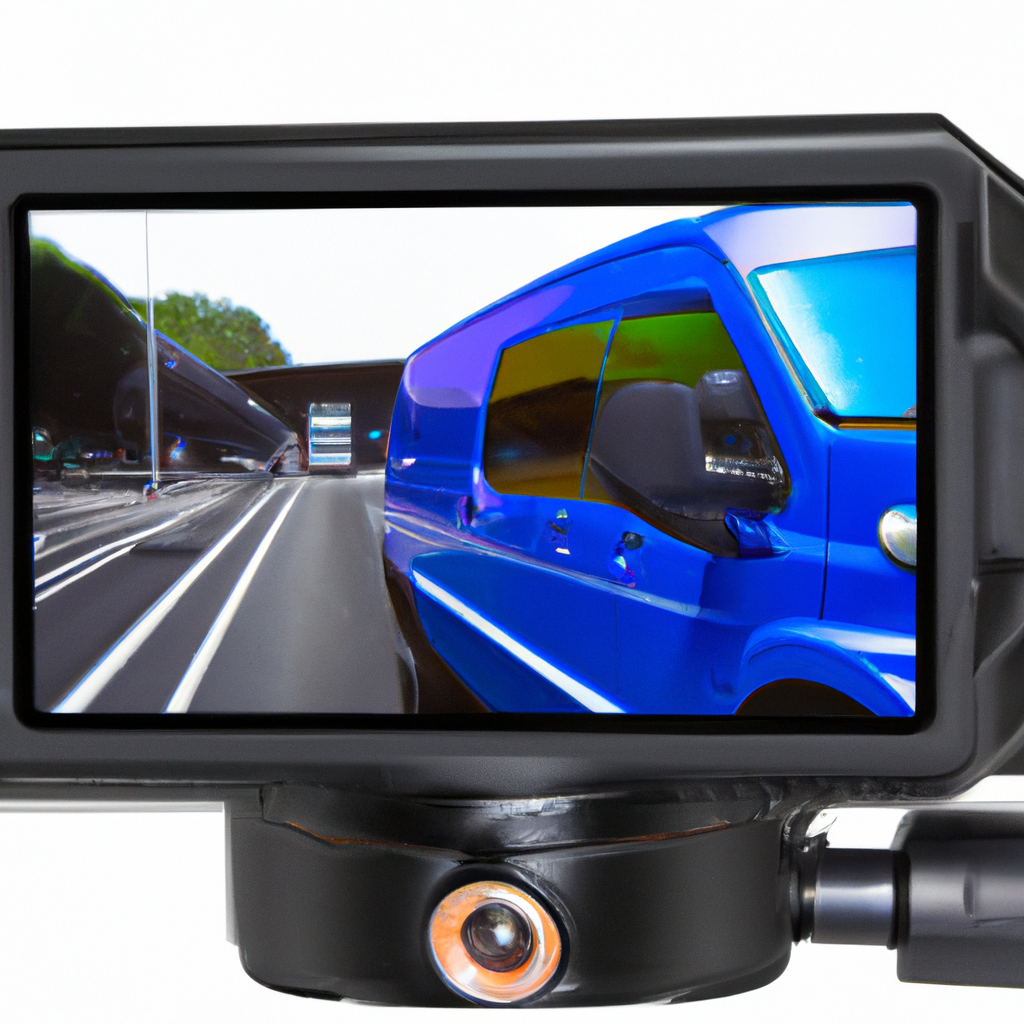-
Table of Contents
- Introduction
- The Benefits of Installing Dashcams in Commercial Vehicles
- How Dashcams Can Help Improve Driver Safety in Commercial Vehicles
- The Legal Implications of Using Dashcams in Commercial Vehicles
- How Dashcams Can Help Reduce Insurance Costs for Commercial Vehicles
- The Pros and Cons of Using Dashcams in Commercial Vehicles
“Stay safe on the road with Can dashcams in commercial vehicles!”
Introduction
Dashcams are becoming increasingly popular in commercial vehicles, as they can provide a wealth of benefits to businesses. Dashcams can be used to monitor driver behavior, provide evidence in the event of an accident, and even help reduce insurance costs. In this article, we will explore the various ways in which dashcams can be used in commercial vehicles, as well as the potential benefits and drawbacks of using them. We will also discuss the legal implications of using dashcams in commercial vehicles, and provide some tips for getting the most out of your dashcam.
The Benefits of Installing Dashcams in Commercial Vehicles
Dashcams are becoming increasingly popular in commercial vehicles, and for good reason. Installing dashcams in commercial vehicles can provide a number of benefits to businesses, including improved safety, increased efficiency, and better customer service.
First and foremost, dashcams can help to improve safety for both drivers and passengers. Dashcams can provide a visual record of events that occur while a vehicle is in motion, which can be used to help identify any potential safety issues. This can be especially useful in the event of an accident, as the footage can be used to determine who was at fault and help to protect the driver from any potential liability. Additionally, dashcams can be used to monitor driver behavior, such as speeding or distracted driving, which can help to reduce the risk of accidents.
Dashcams can also help to increase efficiency for businesses. By providing a visual record of events, dashcams can help to reduce the amount of time spent on paperwork and other administrative tasks. This can help to free up time for other tasks, such as customer service or marketing. Additionally, dashcams can be used to monitor driver performance, which can help to identify areas for improvement and ensure that drivers are meeting the company’s standards.
Finally, dashcams can help to improve customer service. Dashcams can provide a visual record of events that occur during a customer’s journey, which can be used to ensure that customers are receiving the best possible service. This can help to build customer loyalty and trust, which can lead to increased sales and revenue.
In conclusion, installing dashcams in commercial vehicles can provide a number of benefits to businesses, including improved safety, increased efficiency, and better customer service. Dashcams can help to protect drivers from liability, monitor driver performance, and improve customer service, all of which can help to increase a business’s bottom line.
How Dashcams Can Help Improve Driver Safety in Commercial Vehicles
Dashcams are becoming increasingly popular in commercial vehicles, as they can help to improve driver safety. Dashcams are small cameras that are mounted on the dashboard of a vehicle and record the road ahead. They can be used to monitor driver behavior, detect potential hazards, and provide evidence in the event of an accident.
Dashcams can help to improve driver safety by providing a visual record of the journey. This can be used to monitor driver behavior, such as speeding, sudden braking, or other unsafe driving practices. Dashcams can also detect potential hazards, such as animals or debris on the road, and alert the driver to take appropriate action.
Dashcams can also provide evidence in the event of an accident. This can be used to determine who is at fault and help to protect the driver from false accusations. Dashcams can also be used to provide evidence in the event of a dispute with another driver or a third party.
Finally, dashcams can be used to provide feedback to drivers on their performance. This can help to identify areas where drivers need to improve their driving skills and help to reduce the risk of accidents.
In conclusion, dashcams can be a valuable tool for improving driver safety in commercial vehicles. They can be used to monitor driver behavior, detect potential hazards, and provide evidence in the event of an accident. They can also be used to provide feedback to drivers on their performance and help to reduce the risk of accidents.
The Legal Implications of Using Dashcams in Commercial Vehicles
The use of dashcams in commercial vehicles has become increasingly popular in recent years, as they can provide valuable evidence in the event of an accident or other incident. However, there are a number of legal implications associated with the use of dashcams in commercial vehicles that must be taken into consideration.
First and foremost, it is important to note that the use of dashcams in commercial vehicles is subject to the laws of the jurisdiction in which the vehicle is being operated. In some jurisdictions, the use of dashcams may be prohibited or restricted, while in others it may be allowed with certain restrictions. It is therefore important to check the applicable laws before installing and using a dashcam in a commercial vehicle.
In addition, the use of dashcams in commercial vehicles may be subject to privacy laws. Depending on the jurisdiction, the use of dashcams may be restricted or prohibited if it involves recording individuals without their consent. It is therefore important to ensure that any recordings made with a dashcam do not violate any applicable privacy laws.
Finally, the use of dashcams in commercial vehicles may also be subject to data protection laws. Depending on the jurisdiction, the use of dashcams may be restricted or prohibited if it involves the collection, storage, or processing of personal data. It is therefore important to ensure that any recordings made with a dashcam comply with any applicable data protection laws.
In conclusion, the use of dashcams in commercial vehicles can provide valuable evidence in the event of an accident or other incident. However, it is important to be aware of the legal implications associated with the use of dashcams in commercial vehicles, including any applicable laws, privacy laws, and data protection laws.
How Dashcams Can Help Reduce Insurance Costs for Commercial Vehicles
Dashcams are becoming increasingly popular among commercial vehicle owners, as they can help reduce insurance costs. Dashcams are small cameras that are mounted on the dashboard of a vehicle and record video footage of the road ahead. This footage can be used to provide evidence in the event of an accident or other incident, which can help to reduce insurance costs.
Dashcams can provide evidence of who is at fault in the event of an accident, which can help to reduce insurance costs. This is because insurance companies can use the footage to determine who is liable for the accident, and therefore who should pay for the damages. Dashcams can also provide evidence of any dangerous driving or reckless behavior, which can help to reduce insurance costs by reducing the risk of an accident occurring.
Dashcams can also help to reduce insurance costs by providing evidence of any incidents that occur on the road. This can include evidence of any dangerous driving or reckless behavior, as well as evidence of any road hazards or obstacles that may have caused an accident. This evidence can help to reduce insurance costs by providing evidence that the driver was not at fault for the incident.
Finally, dashcams can help to reduce insurance costs by providing evidence of any incidents that occur on the road. This can include evidence of any dangerous driving or reckless behavior, as well as evidence of any road hazards or obstacles that may have caused an accident. This evidence can help to reduce insurance costs by providing evidence that the driver was not at fault for the incident.
In conclusion, dashcams can be a valuable tool for commercial vehicle owners, as they can help to reduce insurance costs. Dashcams can provide evidence of who is at fault in the event of an accident, as well as evidence of any dangerous driving or reckless behavior. They can also provide evidence of any incidents that occur on the road, which can help to reduce insurance costs by providing evidence that the driver was not at fault for the incident.
The Pros and Cons of Using Dashcams in Commercial Vehicles
Dashcams are becoming increasingly popular in commercial vehicles, as they can provide a range of benefits to businesses. However, there are also some potential drawbacks to consider. This article will explore the pros and cons of using dashcams in commercial vehicles.
The primary benefit of using dashcams in commercial vehicles is that they can provide valuable evidence in the event of an accident. Dashcams can record footage of the incident, which can be used to determine who was at fault and to help resolve any disputes. This can be especially useful for businesses that operate in areas with high levels of traffic, as it can help to protect them from liability.
Another advantage of using dashcams is that they can help to improve driver safety. Dashcams can record footage of drivers’ behavior, which can be used to identify any unsafe driving practices and to provide feedback to drivers. This can help to reduce the risk of accidents and improve overall safety.
On the other hand, there are some potential drawbacks to using dashcams in commercial vehicles. For example, the footage recorded by dashcams can be used to monitor drivers’ behavior, which could be seen as an invasion of privacy. Additionally, the cost of installing and maintaining dashcams can be prohibitive for some businesses.
In conclusion, there are both advantages and disadvantages to using dashcams in commercial vehicles. While they can provide valuable evidence in the event of an accident and help to improve driver safety, they can also be costly and could be seen as an invasion of privacy. Businesses should carefully consider the pros and cons before deciding whether or not to install dashcams in their vehicles.
Thanks for visiting Dashcam Installation Australia.
For more information visit local authories sites to know your rights.




